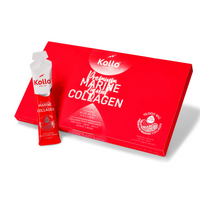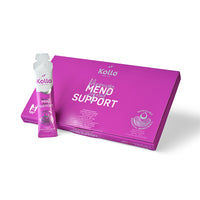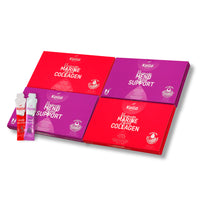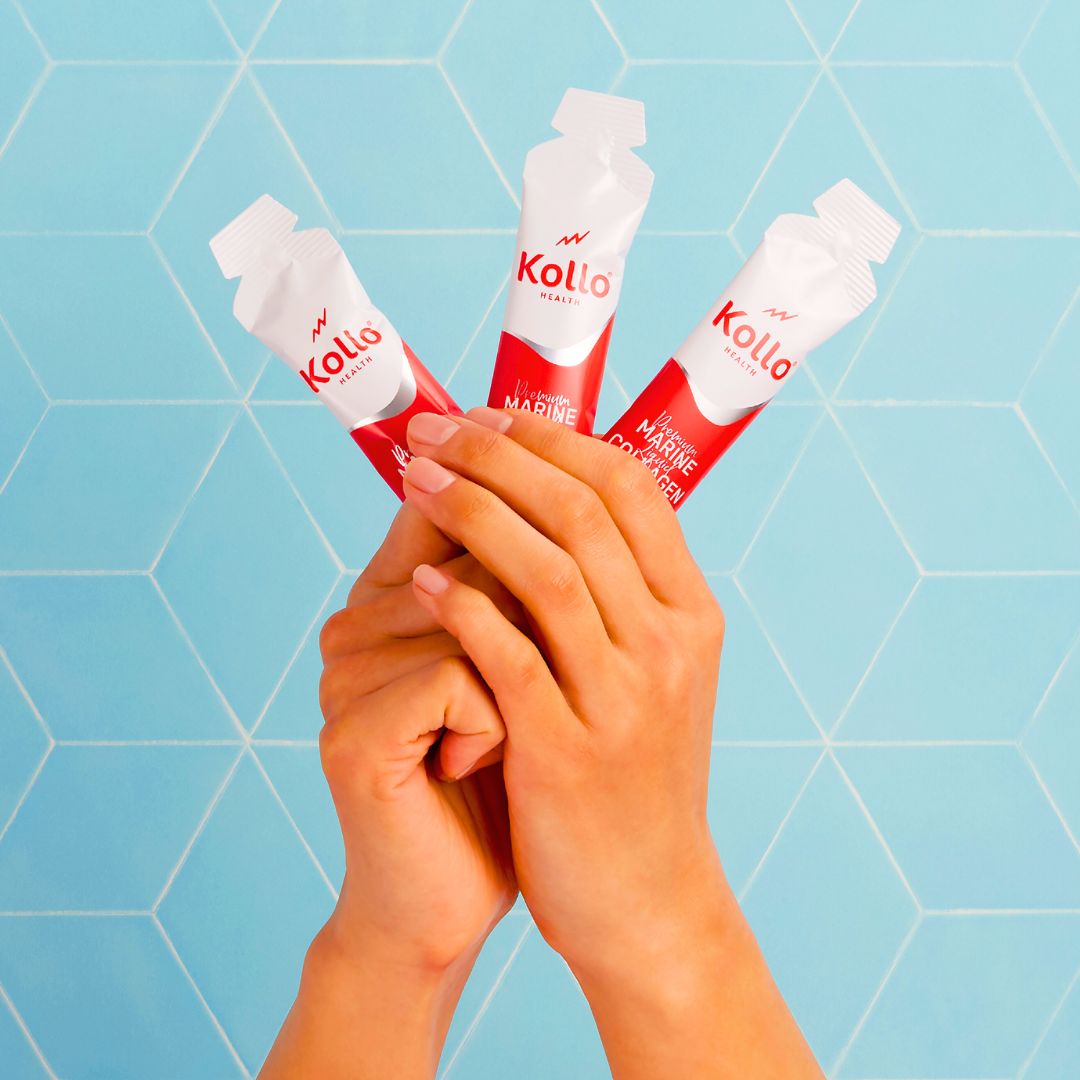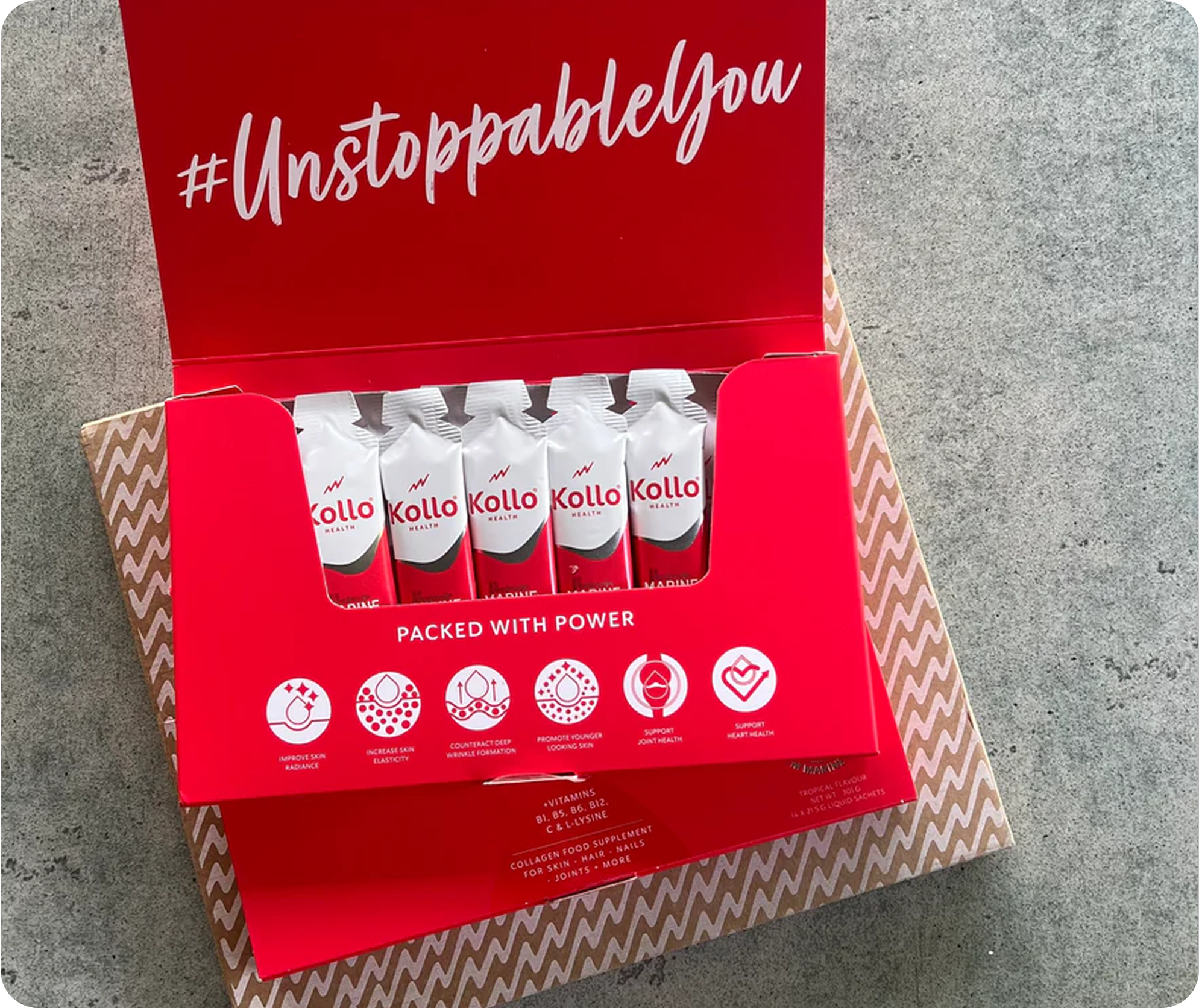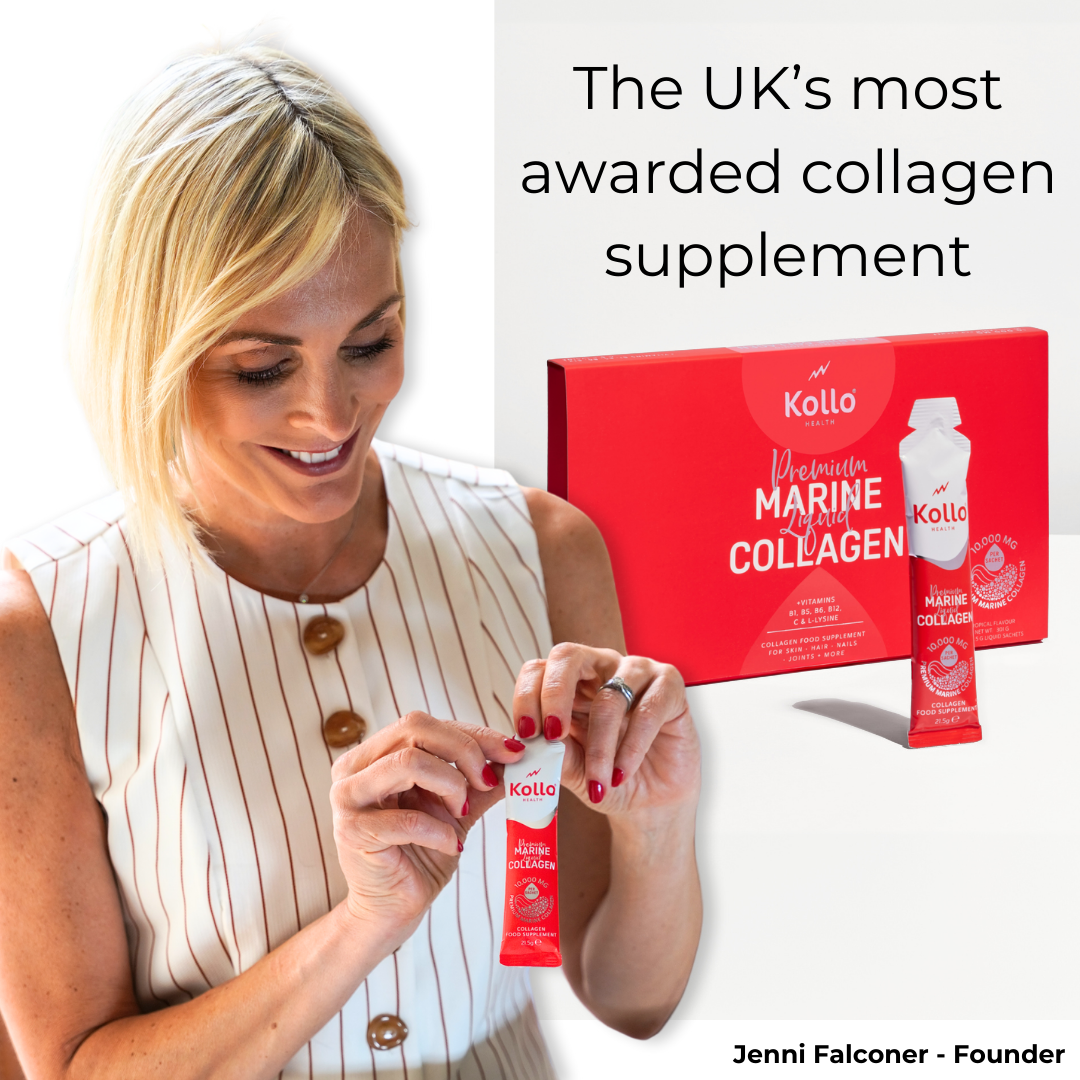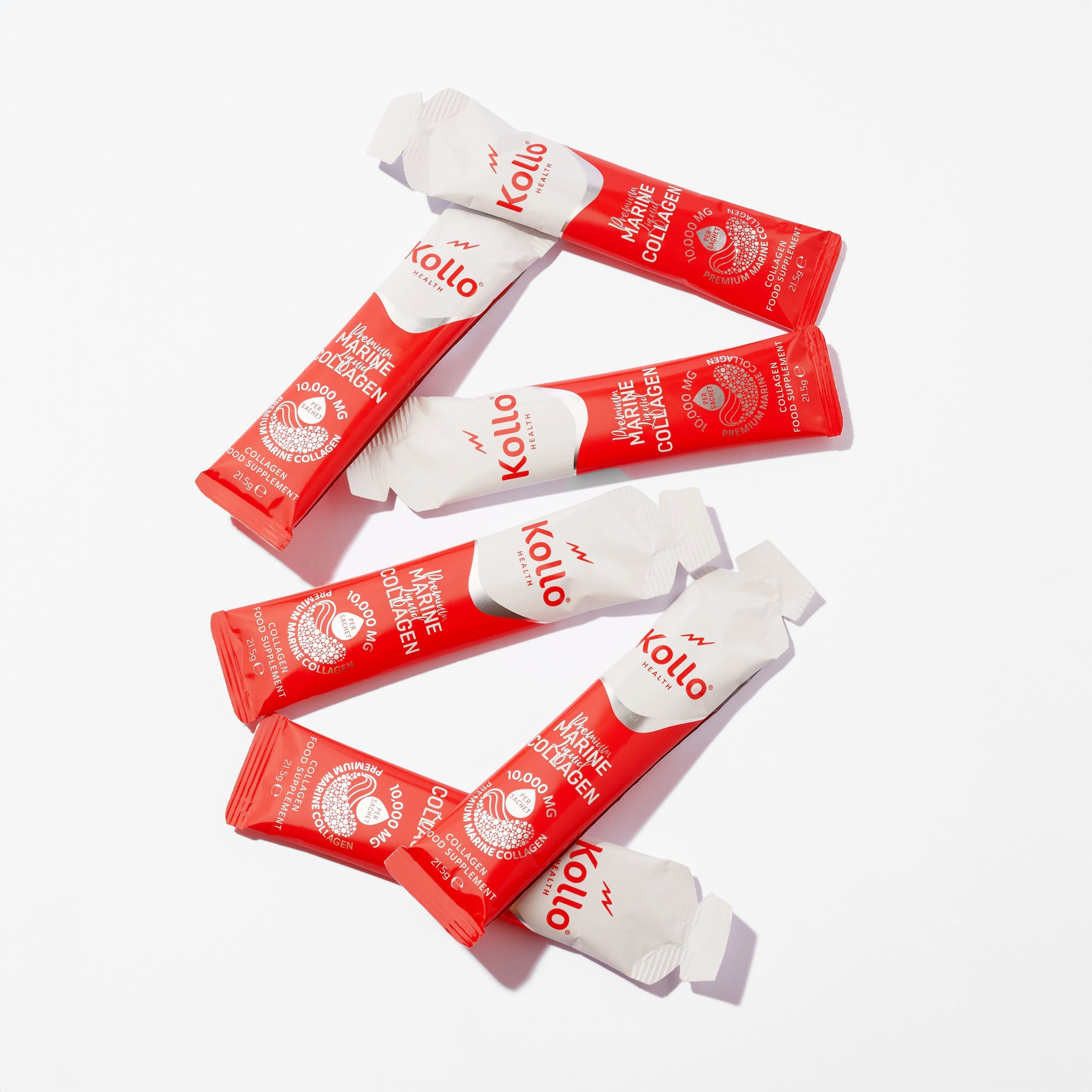Can collagen cause cancer?

Can collagen cause cancer?
Collagen supplements have become a regular fixture on the shelves of health and beauty stores. Whenever considering taking a new supplement, it is common to take some time to consider the potential side effects. Many drugs and supplements are known to cause side effects with varying degrees of severity and it’s important to know whether these would be something you can tolerate moving forward. One important question that may enter your mind is this: ‘Can collagen cause cancer?’
In this post, we will take a look at what the research says about collagen side effects and answer questions relating to collagen and cancer.
That dragon, cancer
Before we proceed with this line of thought, let’s just be clear about one thing: there is no evidence that collagen supplements are a cause of cancer. However, once a person has cancer, things can become a little more complicated.
The protein collagen is used to support and protect our bodies. So, by their very nature, cancerous tumours twist this to their advantage. Tumours are abundant in fibroblasts, the cells responsible for producing collagen. The collagen they produce is used to support and protect the tumour cells, providing a defensive barrier against immune cells, chemotherapeutics and more. For some time, there was a school of thought in cancer treatment that collagen is an obstacle to killing tumour cells.
But there have been recent changes to this way of thinking. The current idea is to stop treating collagen like part of the problem and try to harness it as part of the solution. By finding ways to tether therapies to collagen-binding proteins, the payload to tumours may actually be increased. It is also worth noting that the type of collagen tumours produce is very different from the types of the protein that our bodies usually produce.
So can collagen cause cancer?
The simple answer is no, there is no evidence to suggest that collagen can cause cancer. But collagen is related to cancer in that tumours use it, so the relationship is a complex one. If you are diagnosed with cancer, it would be wise to consult with your doctor regarding whether or not it is safe to take a collagen supplement.
Beyond that, there is no cancer risk associated with collagen supplementation. We are in no position to provide medical advice for people with cancer so we’ll leave that to the experts.
Are there other side effects associated with collagen?
For the vast majority of people who take collagen supplements, there are no side effects reported. For the few people that do experience side effects, they are usually very mild. Having said that, you should always take these types of things seriously and any negative symptoms you experience after taking collagen could be indicative of your overall health. If you are already taking medication or have a long-term health concern, it may be wise to consult your doctor before starting a collagen supplement.
Are there any particular risk factors for taking collagen?
As noted in the previous section, you should consult your doctor if you are on medication, have a chronic health concern or have been diagnosed with cancer. You should also take care if you suffer from allergies – be sure that the collagen supplement you choose does not contain anything that may cause an allergic reaction.
Aside from those things, there is something else you should be aware of. Some collagen supplements are not high-quality and the collagen they contain may be contaminated with toxic substances including heavy metals. This happens in the following way:
-
The collagen in supplements comes from animals
-
Some animals are farmed in crowded conditions where they are fed GMO foods and regularly given antibiotics, growth hormones and other chemicals.
-
These substances also pollute the environment the animals live in, further increasing their exposure.
-
In the animals’ bodies, these chemicals cause toxins to be present in the cells.
-
These toxins are only there in small quantities, but prolonged exposure to them (like taking an inferior collagen supplement every day for a long period) could cause an accumulation of toxins in your body.
-
These toxins could lead to organ damage and other issues in the long-term.
In addition to this, the process of extracting collagen from the animal carcass, and of breaking it down into collagen peptides, can be problematic. If harsh chemicals like acids are used in these processes, it can damage the integrity of the collagen and further contaminate it with toxins that you don’t want in your body.
So are collagen supplements dangerous?
Absolutely not! A high-quality collagen supplement is extremely safe and positive for your health.
It is all about doing your due diligence. If you find a collagen supplement with a low price that seems too good to be true, it probably is. There is a strong chance that the collagen has low integrity, low purity and comes from animals that were farmed in the conditions described above. If you find a collagen brand or supplement that is not transparent about its supply chain or production processes, our advice is to stay away from it.
Whenever you choose a new supplement, it is important to do your homework. Look for a product that ticks all the right boxes and is very transparent about its ingredients and production processes. Seek out products that focus on sustainability, integrity and purity and look for reviews. The benefits of taking a collagen supplement are extensive, but quality is very important to ensure maximum efficacy and safety.
Is Kollo a safe collagen supplement?
At Kollo, we aim for maximum transparency with our customers so they can verify for themselves that our product is safe. We use premium-grade Naticol marine collagen. This comes from aquaculture-farmed fish that are reared in protected, controlled habitats designed to mimic their natural environment with protection against pollutants. Their diet is GMO-free and the use of things like antibiotics is kept to a minimum.
The processes used to extract and hydrolyse the collagen from these fish use no toxic chemicals. Instead, it is done using enzymatic processes to ensure the purity and integrity of the collagen is maintained. The processes for storing and transporting the collagen peptides are also very transparent and no radiation is used at any point in the process. We chose Naticol when developing Kollo because it is forthcoming, sustainable and focuses on quality and purity at every step, and we want to pass those principle on to our customers.
What else makes Kollo stand out?
We hope we have answered the original question thoroughly: can collagen cause cancer? No, and Kollo pulls out all the stops to ensure maximum safety and give our customers the best possible experience with our product.
The first thing to note is that Kollo is Informed Sport certified. This is a certification that is very difficult to obtain. It means every single batch of Kollo is tested before being put to market. The rigorous testing is primarily designed to ascertain whether any banned substances are present that relate to the anti-doping regulations of athletic bodies. But it also verifies the safety of the product which should be very reassuring to potential customers.
Other highlights of Kollo include:
-
A daily dosage of 10g of high-quality marine collagen peptides to deliver on all the benefits of collagen.
-
The formula is fortified with B vitamins, vitamin C and l-lysine to help maximise collagen synthesis.
-
A liquid suspension means a consistent dosage and maximum bioavailability so the active ingredients get to work fast.
-
Our liquid supplement is easy to use – simply empty a sachet into water and drink to enjoy a great tropical taste from natural, sugar-free flavourings.
-
We have won numerous awards and received more than 2,000 5-star reviews from verified buyers.
Learn more about Kollo by exploring our website. You will find sections providing a wealth of information about the product and our company. You will also find details of the science behind collagen supplementation and Naticol collagen in particular. There is a section that showcases unedited customer reviews from verified buyers and before-and-after pictures. And our blog contains an abundance of information on everything there is to know about collagen.
If you still have questions, we can be reached through the Contact page on our website. Reach out through email or social media and our team will be delighted to answer your questions.
